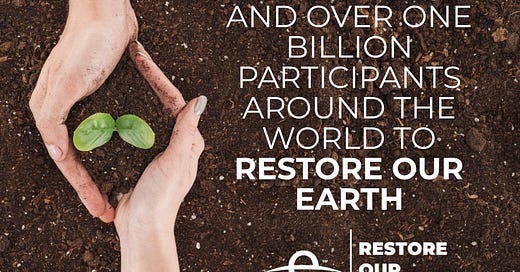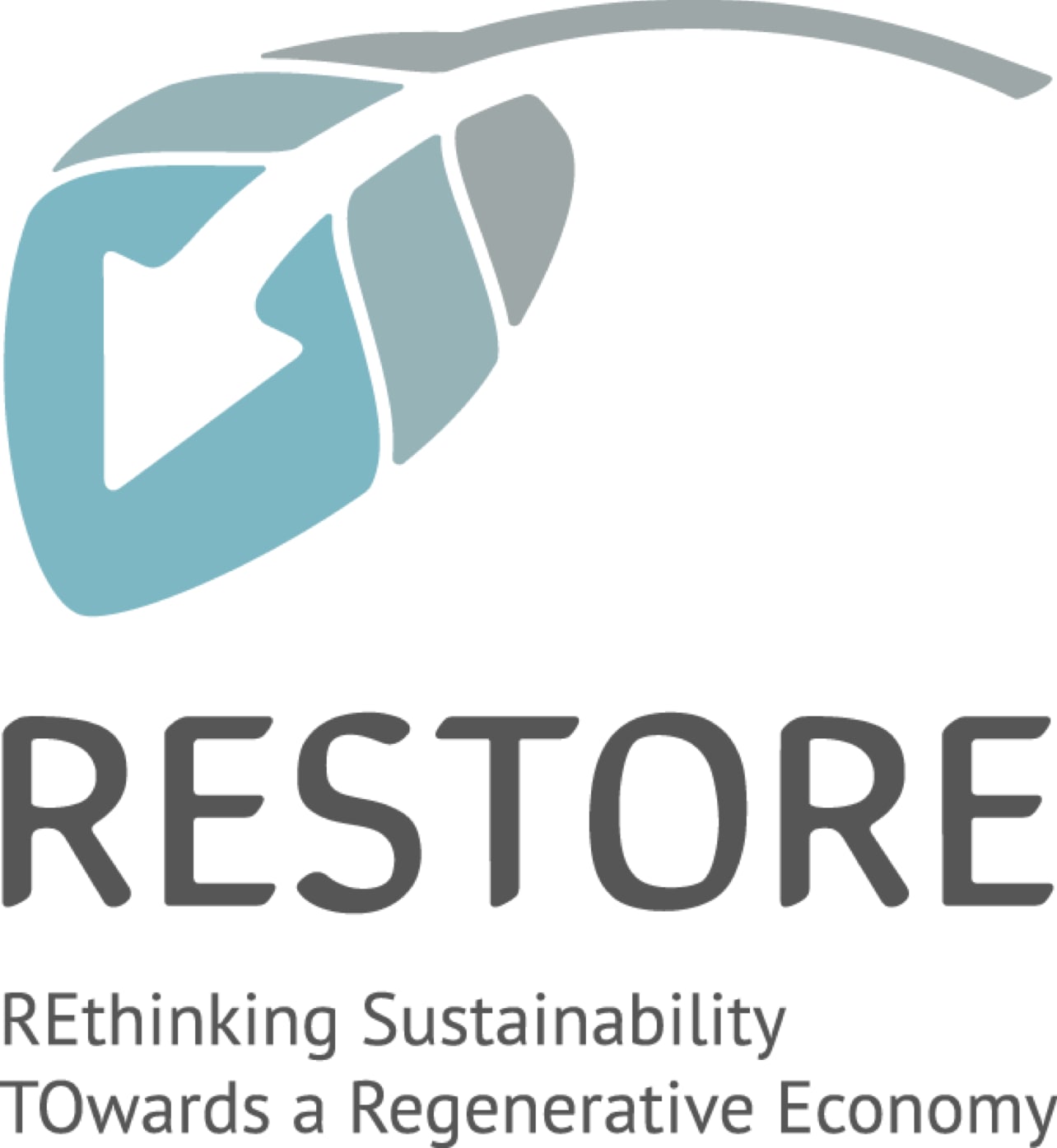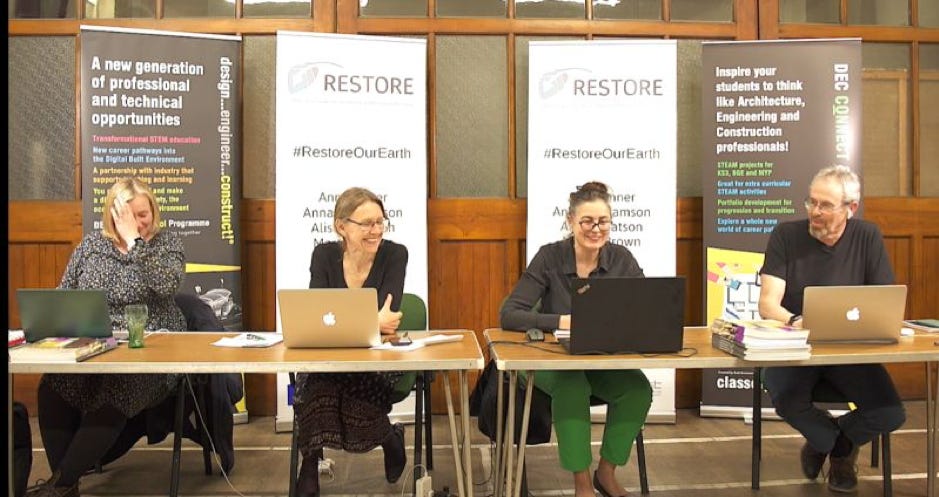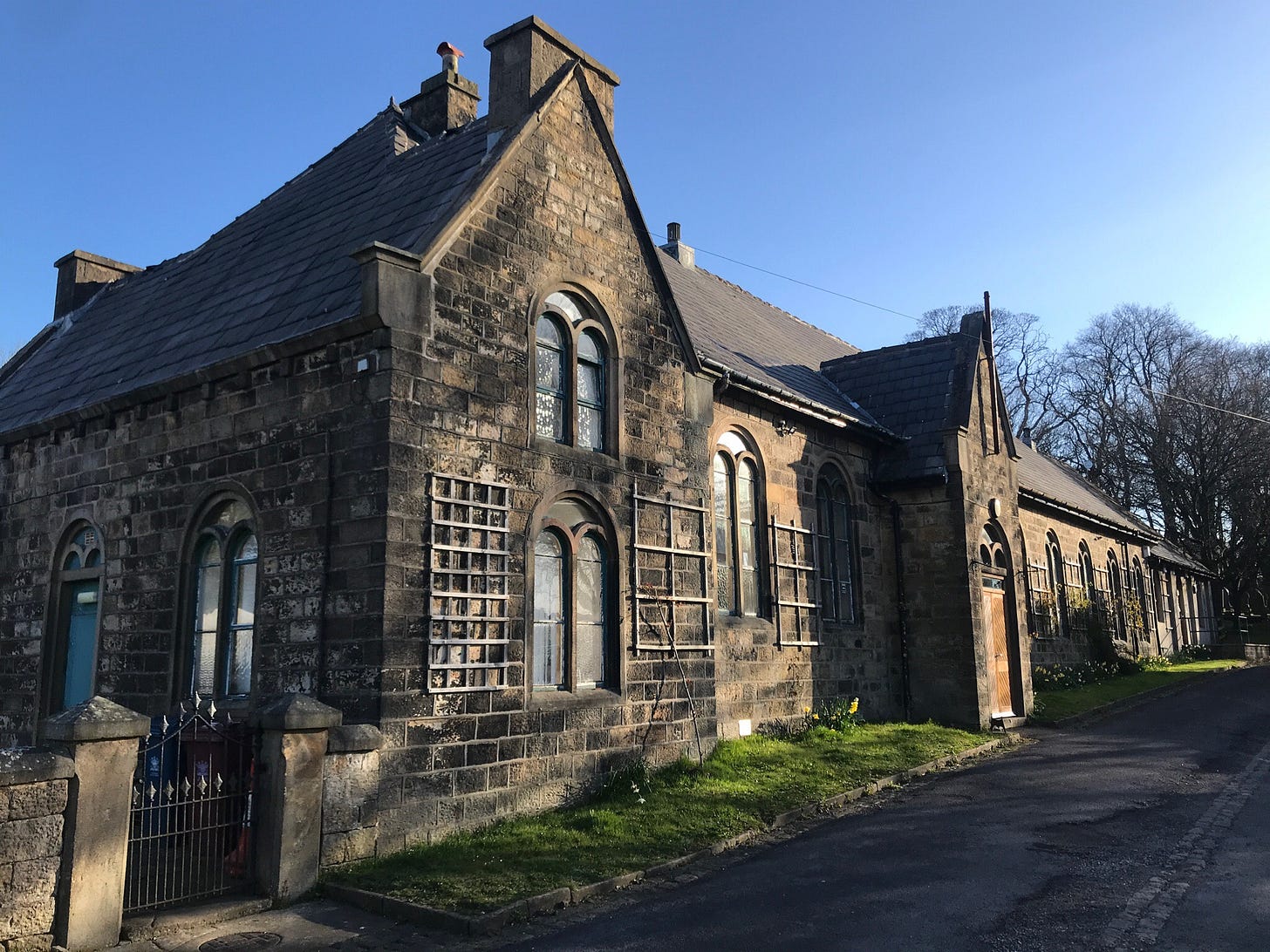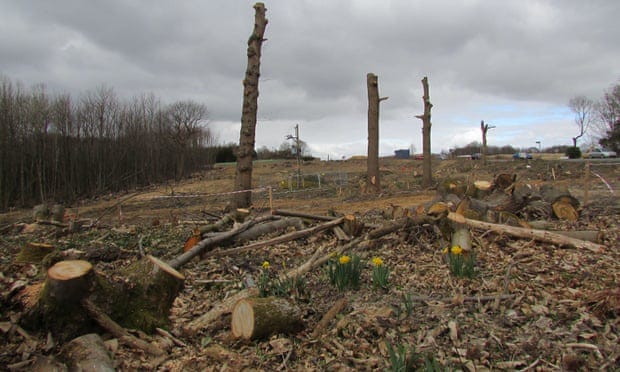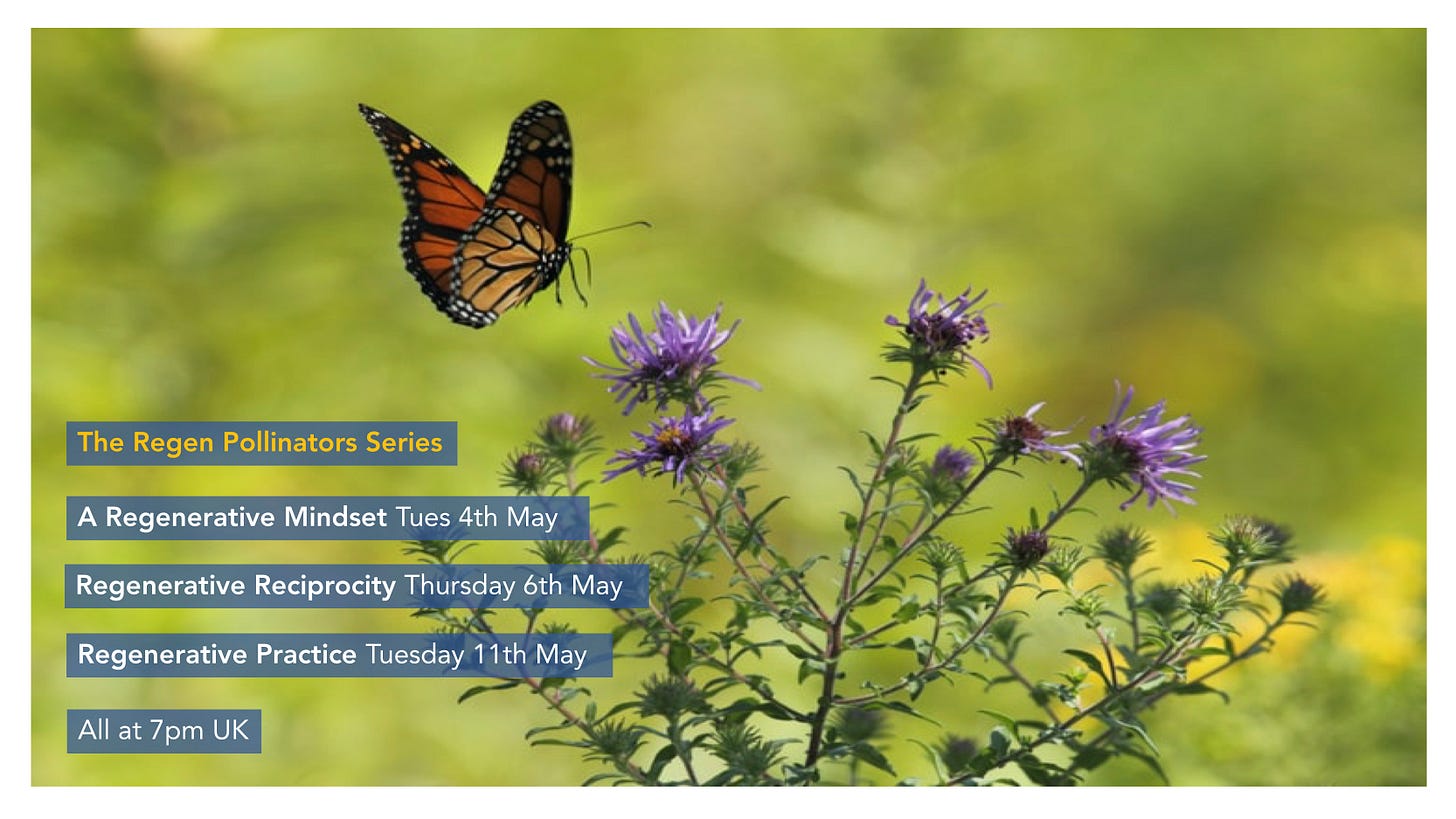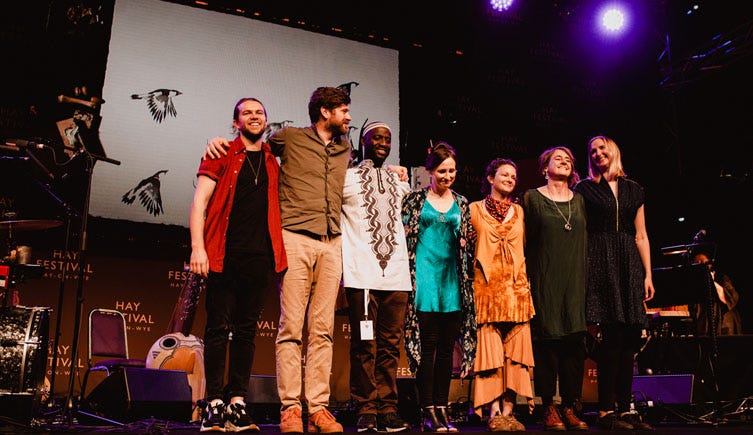Regen Notes #9
EarthDay, Restore, Sabden, SlowWays, Living Mountain, Soil, Pollinators, Zoom Regenerative.
Welcome to Regen Notes, your fortnightly newsletter of regenerative news, stories and more that pass through my feeds, with a sideways focus on the built environment, curated by Martin Brown. Regen Notes is a companion to Zoom Regenerative.
Restore Our Earth
Earthweek 2021, held last week around the world has been a wonderful celebration of restoring our relationship with the earth. Now the challenge continues to make every day an Earthday, and Restore Our Earth.
RESTORE Sabden
Our Restore / Zoom Regenerative event, listed as an Earthday event was a bittersweet affair with the four years EU Cost Action RESTORE ending its journey on the 30th of April. And yet like all strong communities - RESTORE has, and will continue to seed further progress in the built environment, and beyond. I echo Carlo Battisti (chair of Restore) recent comment, ‘it has been one of the most amazing and inspiring four years of my career’
The RESTORE programme assembled, through the work of over 160 members across 40 countries a phenomenal Body of Knowledge, all freely downloadable from the RESTORE pages. There are four further publications in production this week - Restory - the story of Restore, RESTORD 2030 a guide for educators, A System Thinking Guide to Scale Jumping, and our final Book with over 40 contributors.
Our last RESTORE Ready event in Sabden, a hybrid event (hosted by Class Of Your Own) that proved small village halls in rural Lancashire, through digital communications, can be part of the global designation hub. To be able to bring together the dissemination work from RESTORE, the inspiring hub of regenerative practices and projects within NW England and the global Zoom Regenerative community, within my home area - the outstanding Forest of Bowland - has been an honour and a privilege. I am truly grateful for the support of Anna Williamson, Ann Vanner and Alison Watson in bringing this event together, and to the vibrant communities in Restore, the Regens and our local hub in setting the foundation and direction for a just and regenerative future.
There is a wealth of material currently being prepared from Sabden and will be available through the RESTORE pages. (recordings, presentations and proceedings)
Slow Ways - Where will you go?
During Earthweek, on the 23rd April SlowWays soft-launched. It is a network of walking routes that connect all of Great Britain’s towns and cities, with over 7,000 Slow Ways. This unique network of routes was drafted online by volunteers during the Spring 2020 lockdown. The next challenge is to walk, review and verify them all - checking over 100,000km of Slow Ways routes. Get involved or use the SlowWays Planner for walks here
Living Mountain
Nan Shepherd’s’ The Living Mountain has popped up numerous times during the week - I had included it in my Sabden Pecha Kucha as one of my inspirations, we referenced Jenny Sturgeon’s wonderful work - based on the Living Mountain - Air and Light during a Sabden interval, Shepherd appears in the Outside Mag listing of Women Writing About the Wild: 25 Essential Authors, and read more on importance of Nan Shepherd here on BellaCaledonia
Soil Notes
‘A nation that destroys its soils destroys itself.’ Franklin Roosevelt
Writing in FutuREstorative in 2017: “... in the built environment soil has become a costly inconvenience and a problem. We have downgraded the significance of soil, renaming it as mud, muck and dirt to be removed, transported and dumped, at the lowest cost and the nearest location, even if ecologically unsuitable ... irrespective and ignorant of the ecological or biological significance of the soil itself.
Rather than relying on costly, high-tech solutions to address climate change, perhaps a key solution is right under our feet, under and around our buildings: working with the soil, not against it”
Soil - the ‘poor man’s tropical rainforest’
“Hidden under our feet is a miniature landscape made up of tunnels, caves and decaying matter. Soil is where a quarter of the species on our planet are believed to live and in this dark, quiet, damp world, death feeds life. Rotting leaves, fruits, plants and organisms are folded into the soil and burped out as something new. (Soil) Services include regulation of the carbon and nitrogen cycles, nutrient recycling, water storage, regulation of disease and detoxification of pollutants. Despite all this and the fact that soil is at the heart of our existence, we know very little about it.
Researchers create bio-concrete from weeds and crayfish shells
Central Saint Martins graduates Brigitte Kock and Irene Roca Moracia have collaborated to create concrete-like tiles that give new “economic and ecological” value to invasive species. The material for the tiles, which the researchers refer to as bio-concrete, is made from Japanese knotweed and shells from American signal crayfish
UK native woodlands
Writing in the Guardian, Damien Carrington The UK’s native woodlands are reaching a crisis point, with just 7% in good condition, according to the first comprehensive assessment of their health. The Woodland Trust’s report found the woods facing a barrage of threats, including destruction by development, imported pests and diseases, the impacts of the climate crisis and pollution.
And globally Just 3% of the world’s land remains ecologically intact with healthy populations of all its original animals and undisturbed habitat,
Snippet
ACAN Natural Materials. A timely launch of ACAN’s latest working group which promises to be a vibrant and important contribution to the materials debate.
Zoom Regenerative
Following the Sabden collaboration with RESTORE the regular ZR will recommence on May 18th. In the meanwhile a reminder for our ZR Pollinator series Pollinator Series commencing on May 4th
We invite you to participate in three one hour collaborative modules, hosted online by Martin Brown and the ZR team with guest contributors. The three modules will provide an immersion into regenerative topics, trends and thinking - to refresh existing knowledge and skills and/or begin to understand regenerative principles from the ground up and to view them holistically.
Regenerative Minds. 4th May A deeper understanding of what regenerative is and means within our built environment context. Perhaps all too often we use the Einstein quote that “we cannot solve problems with the same mindset that created them”. Yet we may not fully appreciate the mindset now needed to move forward with the regenerative, do more good, not just reduce impact, approach. This session will explore, using design and living systems thinking, how we can acknowledge that we inhabit a biosphere that is interconnected and interdependent.
Reciprocity.6th May An understanding of a reciprocity based connectivity with nature and each other, through, and beyond biophilia. This module examines and goes beyond biophilia (love of life) to explore an understanding of what reciprocity can mean for us in the built environment. There are no transactional relationships in nature where living systems are based on reciprocity.
Regenerative Practice.11 May Exploration of project management approaches for regenerative projects. Moving from ‘systems thinking to ‘living systems thinking’ to provide a new form of symbiotic collaboration. Where we have power with, not over. Like the roots of a tree, or a complex web of mycelium, our collaborative strength is dependant on the strength of others, and vice-versa.
Registration and more details here
And a real treat …
Spell Songs in Concert for the Urban Nature Project. Broadcast live on YouTube from 8pm UK today. Spell Songs is a performance rich in spoken voice, whispers, accents, dialects, native languages, proverbs, sayings, birdsong, river chatter and insect hum, alongside beguiling music, song and visual beauty. A moving evening where music, art and conservation combine to call for a more environmentally enlightened future.
Martin Brown April 2021

